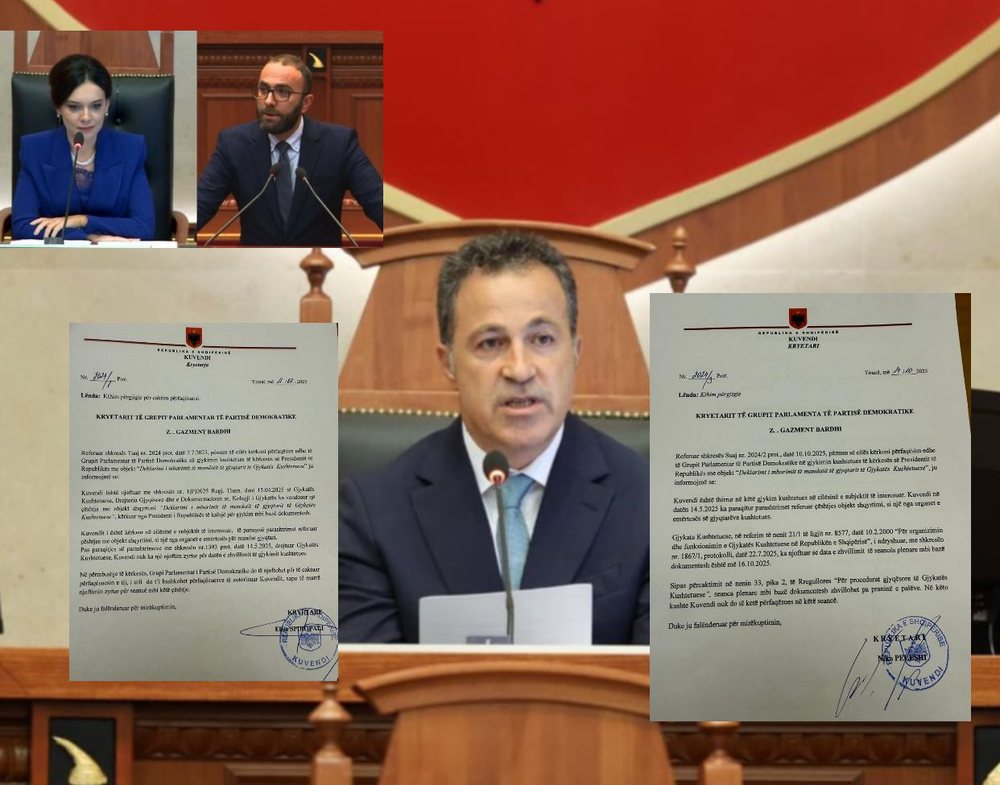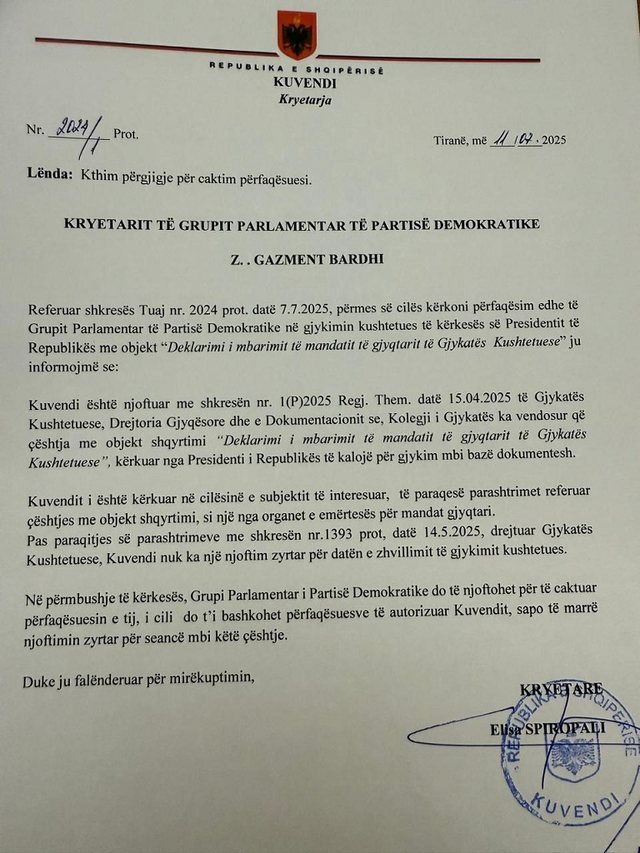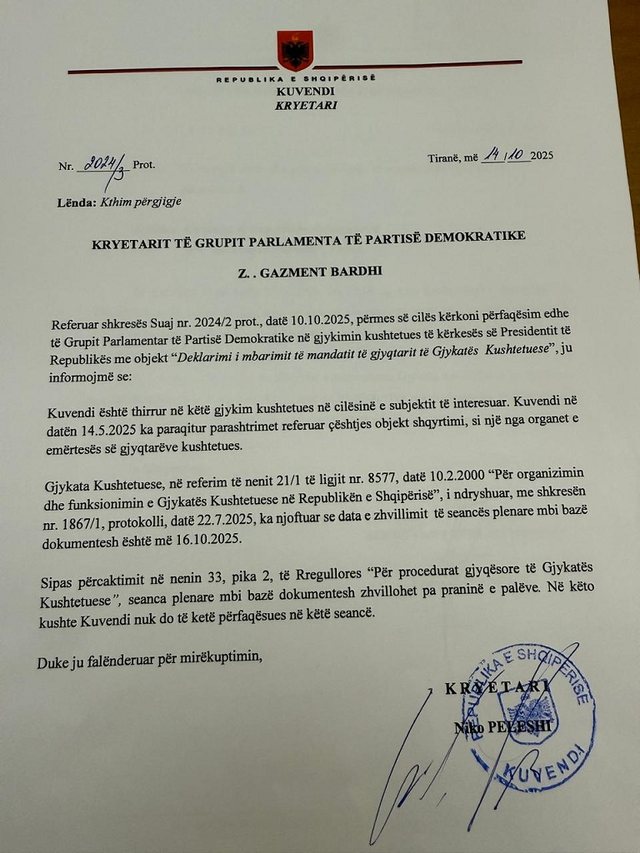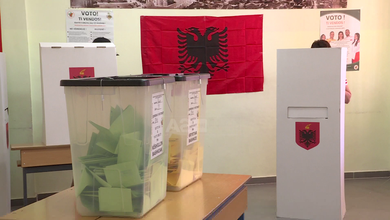
The Speaker of the Parliament, Niko Peleshi, has decided to put an end to an "institutional collaboration" that had begun in an equally absurd and unusual way - between Elisa Spiropali and Gazment Bardhi. With a firm decision, Peleshi has rejected the opposition's request to be part of the Constitutional Court session on October 16, where the issue of the mandates of the members of this institution will be considered.
Essentially, Parliament has a direct interest in this issue and, by law, must be represented by a delegate of the Speaker of the Assembly. But Peleshi has chosen not to be involved in a session that, it seems, was turning into a theater with two usual main actors of Albanian politics: Spiropali and Bardhi.
In July of last year, in one of the strangest parliamentary requests, Democratic Party deputies asked former Speaker of the Assembly Elisa Spiropali to include a representative of theirs in the Constitutional Court session, in addition to the official representative of the Assembly. In other words, to “co-invest” with the Socialists in a process that, in essence, was not theirs.
Spiropali, in her usual diplomatic style, had promised Bardhi this “constitutional companionship” – for the first time in history. But the May changes brought Pelesh to the head of the Assembly, and Bardhi hurried to send the same request, fearing that the “institutional romance” would remain suspended in the transition of power.
The opposition's request, in fact, was more like another flirtation with the majority. The Socialists defended Sonila Bejte, the Democrats demanded the presence of Holta Zaçe – two figures who, ironically, represent the wings of the same crisis that has held the Constitutional Court hostage.
Peles' decision to keep the Assembly out of session has cut everyone's momentum. But the opposition, unable to hide its disappointment, is trying to turn this into an "incoherence" between Peles and Spiropali, throwing spin after spin in the media.
In reality, this episode shows exactly how blurred the line between government and opposition is when it comes to the Constitutional Court. Neither side seeks its independence – only control. And when the interest is shared, even “institutional affections” flourish. But never to the benefit of the Constitution.
























